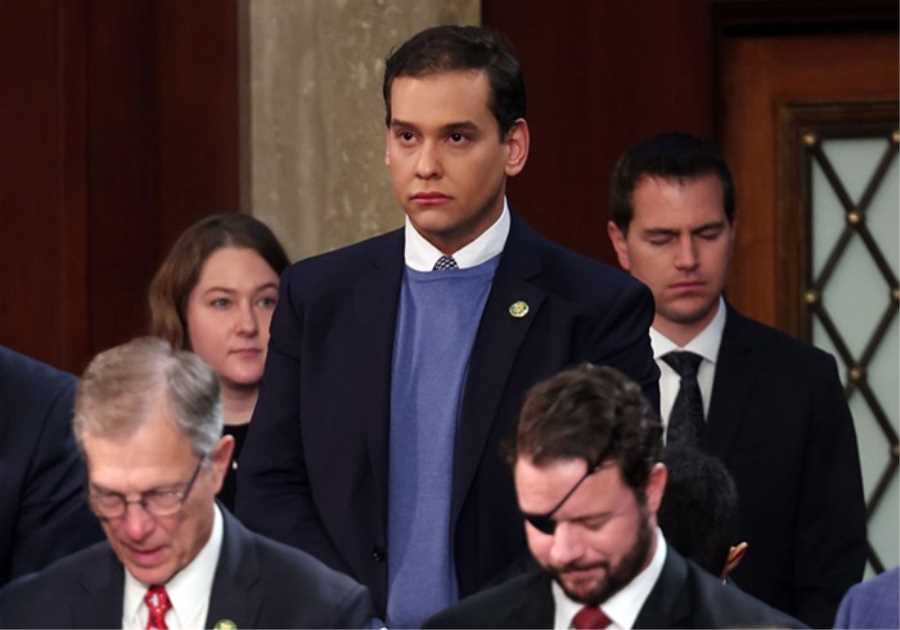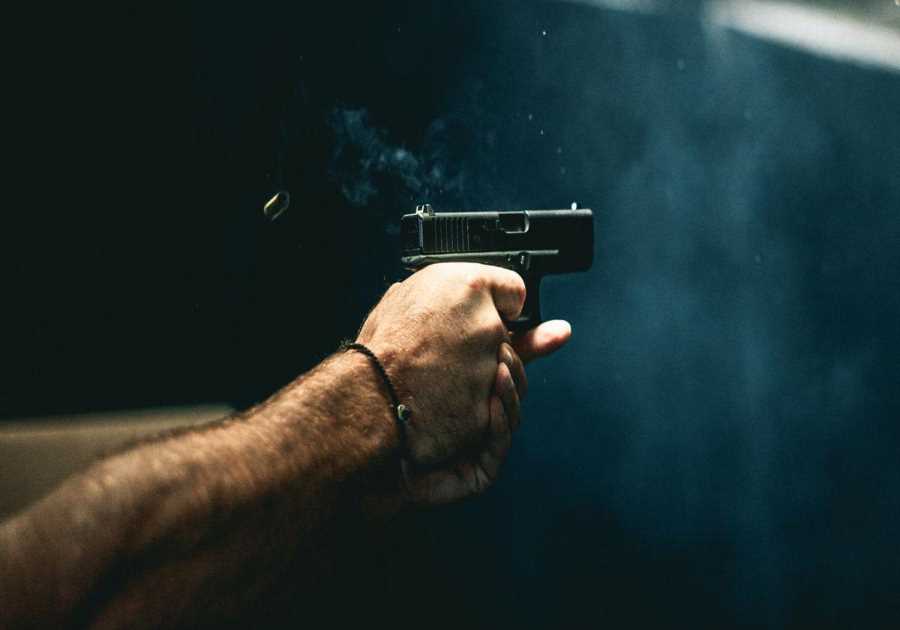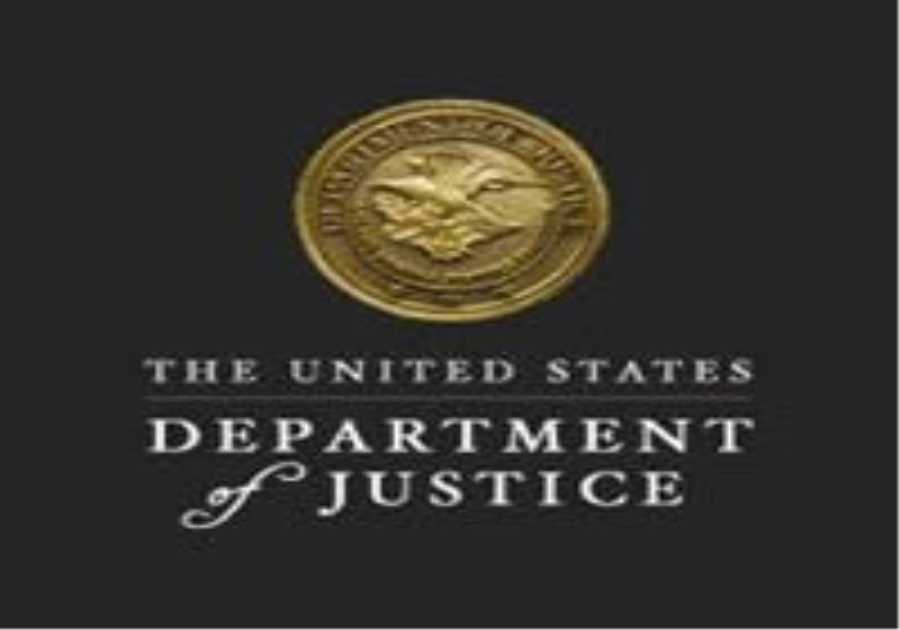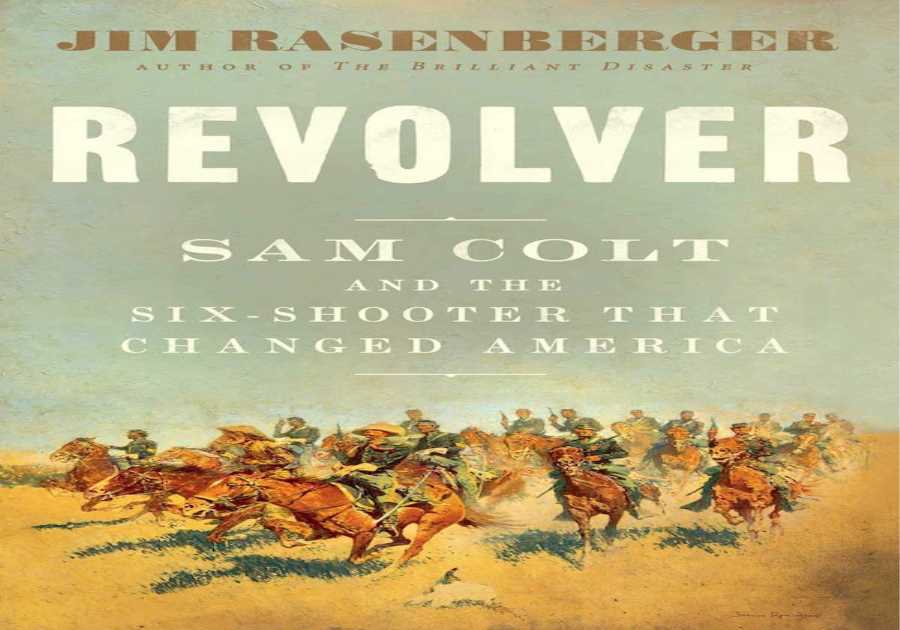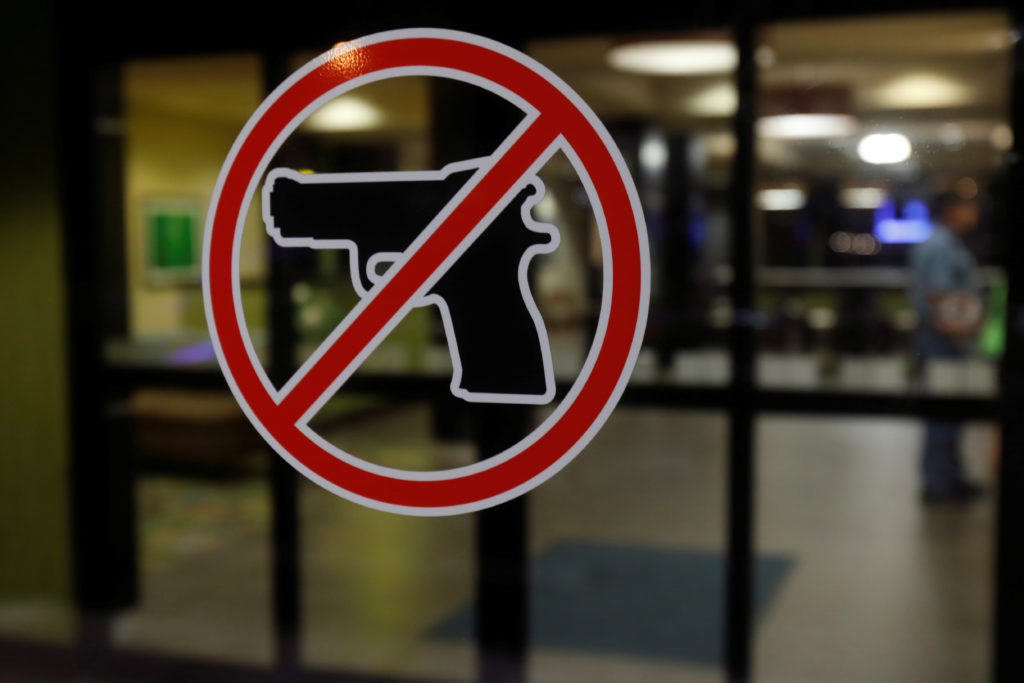
ST. LOUIS – In 2022, the Biden administration worked with Congress to pass the most comprehensive gun reforms in nearly 30 years, offering hope for gun safety advocates across the nation. But those efforts will likely have little effect in Missouri, a state with some of the most lax gun laws in the nation, and a virtual statewide ban on enforcing any federal gun laws. The ban comes in the form of the Second Amendment Preservation Act [SAPA] – a law designed to invalidate any federal regulation of guns or ammunition in the state.
The act, which Gov. Parson signed at a gun shop in June of 2021, states that any gun law that violates a citizen’s Second Amendment rights, by Missouri’s standards, cannot be enforced, essentially invalidating federal authority to regulate guns.
Any public officer or state or local employee who enforces a federal gun law now faces a possible civil penalty of $50,000.
The measure was met with a lawsuit almost immediately from St. Louis City, St. Louis County and Jackson County. In February of 2022, the US Department of Justice sued the state in an attempt to block the law from being enforced.
“A state cannot simply declare federal laws invalid,” Principal Deputy Assistant Attorney General Brian M. Boynton, head of the Justice Department’s Civil Division, said in a release announcing the suit. “This act makes enforcement of federal firearms laws difficult and strains the important law enforcement partnerships that help keep violent criminals off the street.”
The persistent back-and-forth, Washington University Professor of International Law Leila Sadat said, has made issues around guns unclear for law enforcement in Missouri.
WATCH MORE: How the trauma of mass shootings fundamentally change American communities
“That has created huge confusion because the federal government has finally adopted some gun safety laws, enhanced background checks, the red flag law raising the age pretty modestly, and now those federal laws are running into conflict with state laws,” she told the NewsHour .
The act has caused confusion for law enforcement across the state. Last January, 60 Missouri police chiefs filed a friend of the court brief to support a suit against SAPA stating that the act hinders “law enforcement’s ability to defend and protect Missouri citizens,” the Associated Press reported. In a November, 2021 “60 Minutes” interview, Kacey Proctor, the prosecutor in Missouri’s southern Butler County, explained exactly how the act can prevent investigations. Proctor said he witnessed police debating whether to send bullet casings to the Bureau of Alcohol, Tobacco, Firearms and Explosives after a highway shooting.
Missouri Gov. Mike Parson signs the Second Amendment Protection Act in November of 2022.
“We had to have a conversation after we were investigating a murder, while investigating a shooting on the side of the highway at 10:00 a.m. at night, and the ultimate conclusion from the local department was we’re not gonna send this to the ATF because we’re not gonna risk violating SAPA,” Proctor said.
PBS NewsHour reached out to the lawmakers who cosponsored the Second Amendment Protection Act — including former Republican Missouri State Senator Eric Burlison who is now a US representative, and former Republican State Representative Jered Taylor — as well as Missouri Gov. Mike Parson, none of whom either did not respond or return comments.
While law enforcement and the courts deal with confusion over SAPA, gun crimes continue across Missouri. The state was rocked after a gunman opened fire at Central Visual and Performing Arts High School on St. Louis’ south side last October.
During a press conference with police following the shooting, a reporter asked how easy it is to acquire a gun in Missouri. St. Louis Metropolitan Police Department interim police chief Michael Sack told reporters “It’s very easy … the gun laws in Missouri are very broad. [People] can carry them openly down any street and there’s really nothing we can do,” he said. “If someone walks down a main street with a rifle, we’ve got no cause to go talk to them.”
Just days after the horrific incident, details came to light about how 19-year-old Orlando Harris, who graduated from the school the year before, acquired the AR-15 style rifle he used to kill 15-year-old Alexzandria Bell and 61 -year-old Barbara Kuczka – and injure several others.
Police say Harris first tried to purchase a gun from a licensed dealer just weeks before the shooting, but was blocked after failing an FBI background check. He then turned to a private seller who legally bought the gun in 2020.
This is where, Washington University’s Leila Sadat explains, the gunman was able to circumvent that barrier under state law. If someone buys a gun from a private seller, “you don’t even need to complete a federal background check,” she said.
Sadat, the director of the Initiative on Gun Violence & Human Rights at Washington University, has studied gun violence over the past several years through a human rights lens. “This violates our human rights and human rights are federal law. They’re in treats. They’re in customary international law,” she told the NewsHour.
Several gun violence prevention organizations including Everytown for Gun Safety and the Giffords Law Center, agree that Missouri has some of the most loose gun laws in the nation.
READ MORE: Study shows gun violence surged in Missouri after repeal of gun control laws
According to the Giffords Law Center, a gun prevention advocacy and research organization which grades states on a lettered scale, Missouri ranks 47th for gun safety strength and 4th for gun deaths with an overall “F” rating.
However, Missouri Gov. Mike Parson disagrees. Just days after the shooting at Central VPA, in an interview Parson said, “You can make all the guns illegal that you want, but the bottom line is someone is going to go get one, and they’re not law-abiding citizens anyhow. ”
Parson also pointed to mental health as the issue of driving violent shootings, instead of gun availability.
He later visited the St. Louis Metropolitan Police Department to meet the officers who confronted the shooter. When asked about red flag laws Parson told reporters “red flag laws have never been in place in Missouri, and we’re talking about somebody with a mental illness that went into it and committed a criminal act.”
Red flag laws have long faced opposition in Missouri from Republican lawmakers who currently control the state legislature and executive branches. In fact, last June after a bipartisan group of US Senators, including Missouri’s retiring Roy Blunt, announced a deal on gun legislation, 47 state lawmakers signed a letter to Blunt calling the bipartisan policy “Red Flag Gun Confiscation.”
It stated that a vote for the law would “enable the spread of confiscation laws throughout the country, and further normalize support for the eventual disarmament of this nation.”
WATCH MORE: Latest wave of mass shootings sparks new debate over US gun access
Missouri, has a long history of peeling back gun safety policies even when it was supported by voters. In 1999, a majority of voters opposed Proposition B or the Missouri Concealed Firearms Act, which would have allowed for concealed carry. In 2003, however, lawmakers introduced HB 349, which sought to do what Proposition B failed to do: Authorize permits to carry concealed firearms. When the law was delivered to then Gov. Bob Holden’s desk he vetoed it. That decision was then overturned by the state legislature, which decided to override the governor’s veto, completely reversing what voters decided in the 1999 election.
In 2007, the legislature repealed Missouri’s permit-to-purchase law, which required a background check. Seven years later, researchers at the Johns Hopkins Center for Gun Policy and Research would find that the rescinding of this law contributed to a 14 percent jump in Missouri’s murder rate. The same year this study was published, Missouri reduced the minimum age for concealed carry from 21 to 19.
Nationally, data from a June NPR/PBS NewsHour/Marist National Poll shows 59 percent of Americans believe it is more important to control gun violence than to protect gun rights.
Firearms are now the leading cause of death in children and teens according to the Centers for Disease Control and Prevention. Federal law requires a person to be at least 18 to buy a rifle and 21 to buy a handgun.
It is this divide between state and federal law and the Second Amendment Preservation Act that Sadat says creates a chilling effect that now has to play out in court.
“St. Louis city and county challenged the law immediately, and they wanted declaratory relief that the law was unconstitutional. That lawsuit is still pending. It was remanded and that lawsuit is still pending,” she said. Given the recent laws passed by the Biden administration, she notes it will be key to see how Missouri’s challenges play out in the end.
“You would think under the supremacy clause that it would, in fact, be unconstitutional for Missouri to refuse to enforce federal law,” she told the NewsHour. “It’s quite surprising or maybe not so surprising, but it does put the police in a very difficult situation.”
Efforts to address violence in St. Louis
Just months before the shooting at Central VPA in St. Louis, the city launched its first ever Office of Violence Prevention which its director, Wilford Pinkney, said aims to create “safe and healthy communities free of violence” but from a holistic lens.
By “holistic lens,” Pinkney elaborates that it is “addressing violence, causes of violence, helping to identify people’s basic needs [and] to identify what resources we have in the community that can help meet those needs.”
But in St. Louis, much like many other cities across the country, addressing gun violence is paramount.
“The dominant issue in our communities is gun violence so yes gun violence is the primary focus in that sense, stopping it, limiting it, helping to heal people from the damages of being victimized by it both personally and tangentially because if I’m in the community where it’s constantly gunshots going on, I’m impacted by that,” Pinkney told the NewsHour.
But again, it is a road that for many, leads back to access to guns in the first place.
In 2018, The Small Arms Survey, a project led by the Graduate Institute of International and Development Studies in Geneva, found that in the US the number of guns outnumbered the number of people.
“We often think about the availability of guns. In most large cities in this country, it’s easy to get a gun. Now the question becomes the laws that allow for strategies to be developed to address people when they actually do get the gun right and I’d say that is what is the biggest challenge here, right? Because there shouldn’t be as many guns in our country as there are,” Pinkney explained.
It’s a reality he said many in the community have been working for a long time to address, and while changing policy in the end is important, helping the community at this moment is vital.
“There is a legislative component to this, and we can do two things at one time. But the office is really going to be thinking about what are we doing now on the ground. And hopefully through our work and the data we collect [we can] inform changes legislatively and fiscally,” Pinkney said.



